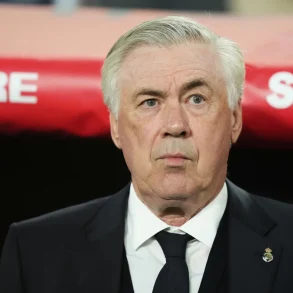Before Roy Hodgson’s arrival, Switzerland’s national football team had endured decades of disappointment. Despite reaching the quarter-finals of the 1958 World Cup, they failed to qualify for another major tournament for 28 years. Several Swiss coaches attempted to revive the team, but their efforts fell short.
Even German coach Uli Stielike was unsuccessful in guiding Switzerland to the 1990 World Cup, finishing second-bottom in their qualification group. The Swiss Football Association turned to Hodgson, a relatively unknown Englishman managing in Switzerland, with little expectation of a major turnaround.
Hodgson’s arrival marked a turning point for Swiss football, not only improving short-term results but also revolutionizing the team’s mentality. Under his leadership, Switzerland transformed into a competitive side, rising to third in the FIFA World Rankings.
Former Swiss international Ciriaco Sforza credited Hodgson with instilling a new football philosophy, inspiring confidence, and galvanizing both players and the Swiss football federation. This newfound belief led to a remarkable qualification campaign for the 1994 World Cup, finishing top of a tough group that included Italy, Portugal, and Scotland.

Roy Hodgson’s Leadership Transformed Switzerland Into a Competitive Footballing Nation
Against the odds, Switzerland qualified for the knockout rounds of the 1994 World Cup. Their group-stage victory over Romania, featuring the legendary Gheorghe Hagi, propelled them into the Round of 16, where they ultimately fell to Spain. Despite their exit, Hodgson’s impact was undeniable.
Sforza noted that qualifying for the World Cup opened doors for Swiss players in European leagues, marking the beginning of a new era. Before Hodgson’s tenure, only a handful of Swiss players competed abroad; after his influence, Swiss football became a talent pool for European clubs.
Hodgson continued to strengthen Switzerland’s reputation by guiding them to their first-ever European Championship in 1996. Losing only one qualification match, the Swiss topped their group and secured a place at Euro 96.
However, before the tournament, Hodgson left to take charge at Inter Milan, a move that signified his growing reputation. Without him, Switzerland struggled at the tournament, finishing last in their group. His departure also led to a period of decline, with the team failing to qualify for the next three major tournaments.

Roy Hodgson’s Lasting Influence on Swiss Football’s Tactical Evolution
Despite his brief tenure, Hodgson left a lasting legacy in Swiss football. His innovative training methods modernized the country’s approach to the game, and his tactical expertise helped shape a generation of Swiss footballers. Oliver Zesiger, a researcher for Football Manager, highlighted Hodgson’s linguistic abilities in German and French, which helped him connect with players.
Hodgson’s meticulous preparation and attention to detail earned him immense respect, with former striker Adrian Knup famously remarking, “This man knows a lot more about football than I do.” His influence extended beyond the national team, contributing to reforms in the youth system and tactical training.
Switzerland’s resurgence in international football can be traced back to Hodgson’s impact. They have since qualified for five of the last six major tournaments and returned to the top ten in FIFA’s rankings. Even today, his role in shaping Swiss football is widely recognized.
Sforza, who followed Hodgson to Inter Milan, credited him with instilling a winning mentality that shaped his career. With Switzerland continuing to compete at the highest level, those who witnessed Hodgson’s work remember him as the man who made it all possible, cementing his place as a Swiss football legend.







